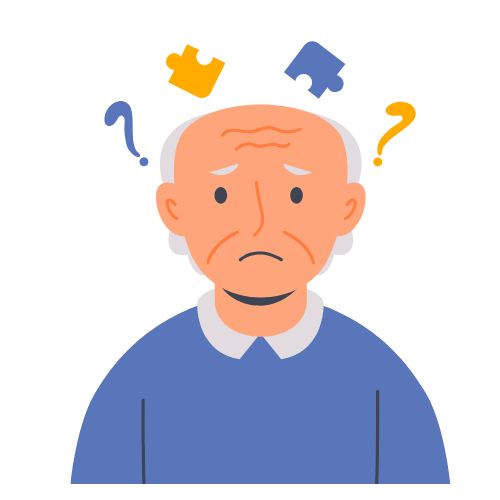Introduction to Mental Health
Mental health is an integral aspect of overall well-being, encompassing emotional, psychological, and social dimensions. It influences how we think, feel, and act, affecting our ability to cope with stress, relate to others, and make choices. Mental health is not merely the absence of mental illness; it is a state of flourishing that can be influenced by various factors, including genetics, environment, and life experiences.
What Are Mental Illnesses?
Mental illnesses are conditions that affect a person’s thinking, feeling, behavior, and mood. They can disrupt daily functioning and lead to significant distress. According to the World Health Organization (WHO), mental disorders are common and affect millions worldwide. These disorders can vary widely in their severity and impact on life.
Types of Mental Illnesses
- Anxiety Disorders: Includes generalized anxiety disorder (GAD), panic disorder, and social anxiety disorder. Symptoms may include excessive worry, restlessness, and physical symptoms like increased heart rate.
- Mood Disorders: Primarily encompasses depression and bipolar disorder. Depression is characterized by persistent sadness, loss of interest, and fatigue, while bipolar disorder involves extreme mood swings from high (mania) to low (depression).
- Psychotic Disorders: Such as schizophrenia, these disorders affect a person’s perception of reality, leading to hallucinations or delusions.
- Personality Disorders: These include conditions like borderline personality disorder and antisocial personality disorder, characterized by enduring patterns of behavior and inner experience that deviate from cultural expectations.
- Eating Disorders: Such as anorexia nervosa and bulimia nervosa, these disorders involve preoccupation with food, body weight, and shape, leading to unhealthy eating behaviors.
- Post-Traumatic Stress Disorder (PTSD): A condition that can occur after experiencing or witnessing a traumatic event, leading to flashbacks, nightmares, and severe anxiety.
Diagnosis of Mental Illnesses
Diagnosing mental illness is complex and typically involves a combination of clinical assessment, patient interviews, and standardized questionnaires. The Diagnostic and Statistical Manual of Mental Disorders (DSM-5), published by the American Psychiatric Association, is widely used in the U.S. to classify mental disorders.
Assessment Tools
- Clinical Interviews: Mental health professionals conduct structured or semi-structured interviews to gather comprehensive information about the patient’s history, symptoms, and functioning.
- Self-Report Questionnaires: Tools like the Beck Depression Inventory (BDI) or the Generalized Anxiety Disorder 7-item scale (GAD-7) help quantify symptoms and assess their severity.
- Observational Assessments: Clinicians may also observe behavior in various settings to gather further insights into the patient’s condition.
Importance of Accurate Diagnosis
Accurate diagnosis is crucial for effective treatment. Misdiagnosis can lead to inappropriate treatment, worsening of symptoms, and increased distress. Mental health professionals must consider cultural, social, and contextual factors during diagnosis, as these can influence symptoms and their interpretation.
Treatments for Mental Illnesses
Treatment for mental illnesses can vary based on the specific condition, severity, and individual preferences. Effective treatment often involves a combination of therapies, medications, and lifestyle changes.
Psychotherapy
Psychotherapy, or talk therapy, is a cornerstone of mental health treatment. It involves working with a trained mental health professional to explore thoughts, feelings, and behaviors. Various therapeutic approaches include:
- Cognitive Behavioral Therapy (CBT): A widely researched method that focuses on identifying and changing negative thought patterns and behaviors. Studies have shown CBT to be effective for disorders like anxiety and depression (Hofmann et al., 2012).
- Dialectical Behavior Therapy (DBT): Developed for borderline personality disorder, DBT combines CBT with mindfulness techniques and is effective in reducing self-harm and improving emotional regulation (Linehan et al., 2006).
- Psychodynamic Therapy: Focuses on exploring unconscious thoughts and feelings, often addressing past experiences and how they shape present behavior.
- Interpersonal Therapy (IPT): Concentrates on improving interpersonal relationships and social functioning, particularly effective for depression (Cuijpers et al., 2016).
Medications
Pharmacotherapy can be beneficial for many mental health disorders, often used in conjunction with psychotherapy. Common classes of psychiatric medications include:
- Antidepressants: Such as selective serotonin reuptake inhibitors (SSRIs) (e.g., fluoxetine, sertraline) are commonly prescribed for depression and anxiety disorders. Meta-analyses have demonstrated their efficacy, particularly in moderate to severe cases (Cipriani et al., 2018).
- Antipsychotics: Used to manage symptoms of psychosis, schizophrenia, and bipolar disorder. Medications like risperidone and olanzapine have shown effectiveness in reducing psychotic symptoms (Kahn et al., 2008).
- Mood Stabilizers: Such as lithium, are primarily used for bipolar disorder to stabilize mood fluctuations.
- Anxiolytics: Medications like benzodiazepines can provide short-term relief from severe anxiety but are typically not recommended for long-term use due to the risk of dependence.
Lifestyle and Holistic Approaches
In addition to psychotherapy and medication, lifestyle changes and holistic approaches can significantly impact mental health:
- Exercise: Regular physical activity has been shown to reduce symptoms of anxiety and depression (Rebar et al., 2015). Exercise promotes the release of endorphins, enhancing mood.
- Nutrition: A balanced diet rich in omega-3 fatty acids, vitamins, and minerals supports brain health. Research indicates that a Mediterranean diet may be associated with a lower risk of depression (Sánchez-Villegas et al., 2009).
- Mindfulness and Meditation: Mindfulness practices have been linked to reduced anxiety and improved emotional regulation (Keng et al., 2011).
- Social Support: Strong social connections are vital for mental health. Supportive relationships can buffer against stress and provide a sense of belonging.
Evidence-Based Practices
The integration of evidence-based practices into mental health treatment is essential for ensuring that interventions are effective. Numerous studies support the efficacy of various treatments:
- A review of over 200 studies indicated that both CBT and medication are effective for treating major depressive disorder, with some evidence suggesting that combined treatment is more effective than either alone (Cuijpers et al., 2014).
- Research on mindfulness-based interventions shows significant reductions in symptoms of anxiety and depression, emphasizing the role of mindfulness in enhancing psychological resilience (Keng et al., 2011).
Challenges in Mental Health Treatment
Despite the advancements in understanding and treating mental illness, significant challenges remain:
Stigma
Stigma surrounding mental health issues often prevents individuals from seeking help. Misconceptions and negative stereotypes can lead to discrimination, isolation, and a reluctance to engage in treatment. Efforts to reduce stigma through education and awareness are essential in promoting mental health.
Access to Care
Access to mental health care remains a critical issue. Many individuals face barriers such as cost, lack of insurance, and a shortage of qualified professionals. Teletherapy and online resources are emerging as potential solutions, expanding access to care.
Co-Occurring Disorders
Individuals with mental illness often experience co-occurring disorders, such as substance use disorders. Integrated treatment approaches that address both mental health and substance use are vital for effective recovery.

Mental health is a multifaceted aspect of human well-being that significantly impacts our lives. Understanding mental illnesses, their diagnosis, and treatment options is crucial for fostering a healthier society. By addressing the challenges and advocating for effective, evidence-based practices, we can promote mental wellness and support those in need. Continued research, awareness, and compassion are key to advancing mental health care and reducing the stigma surrounding mental illness, ensuring that everyone has access to the support they deserve.







